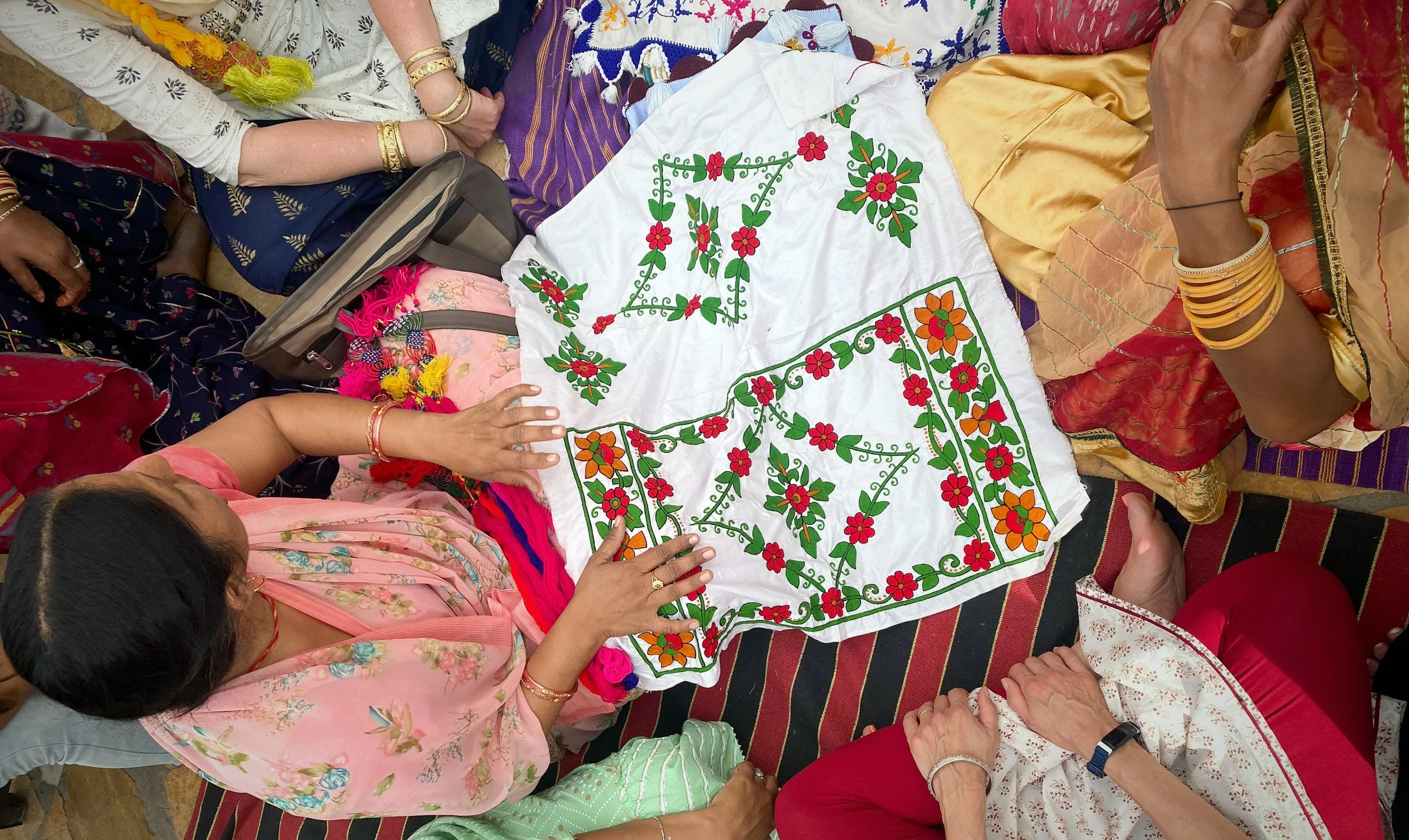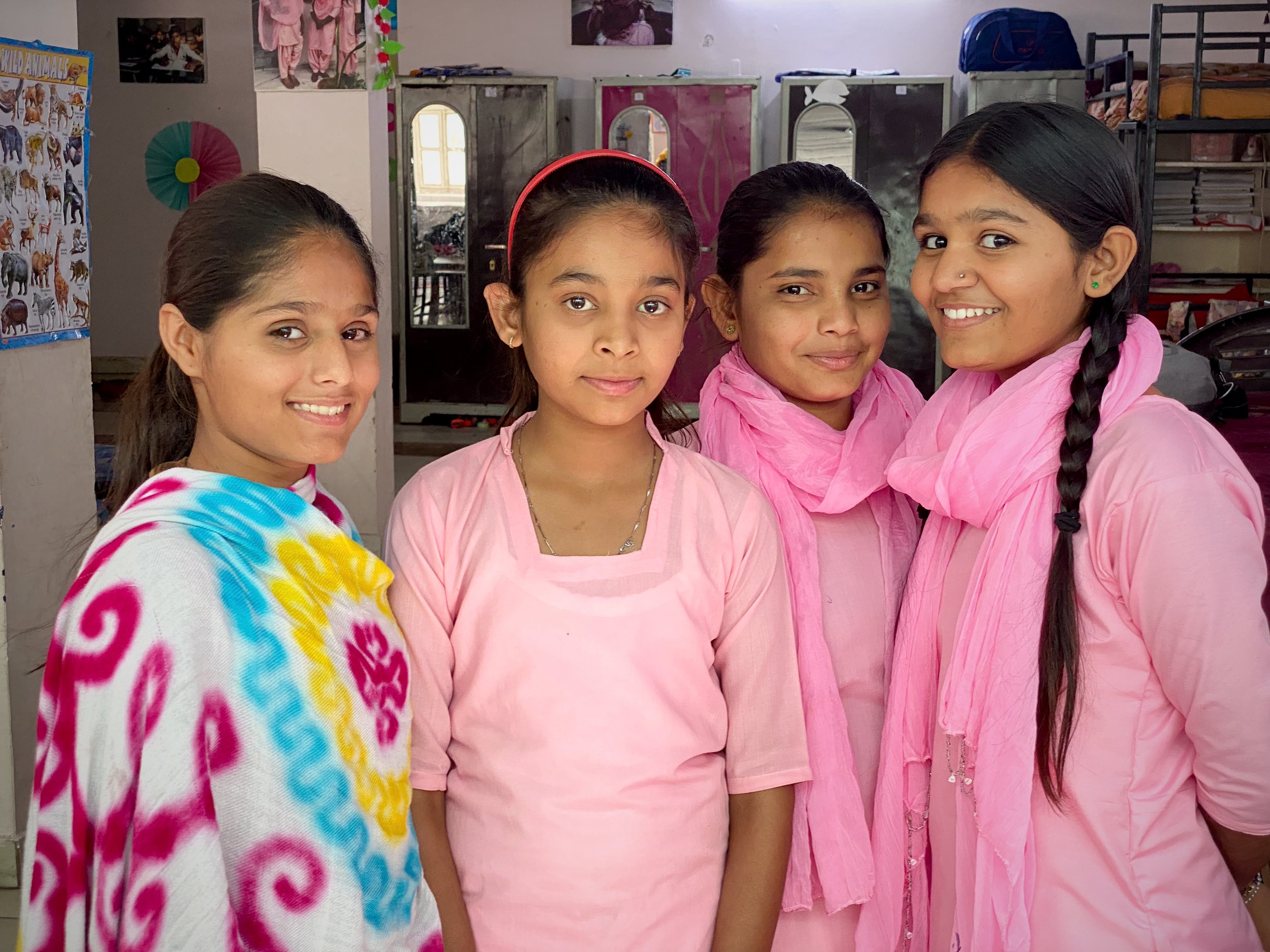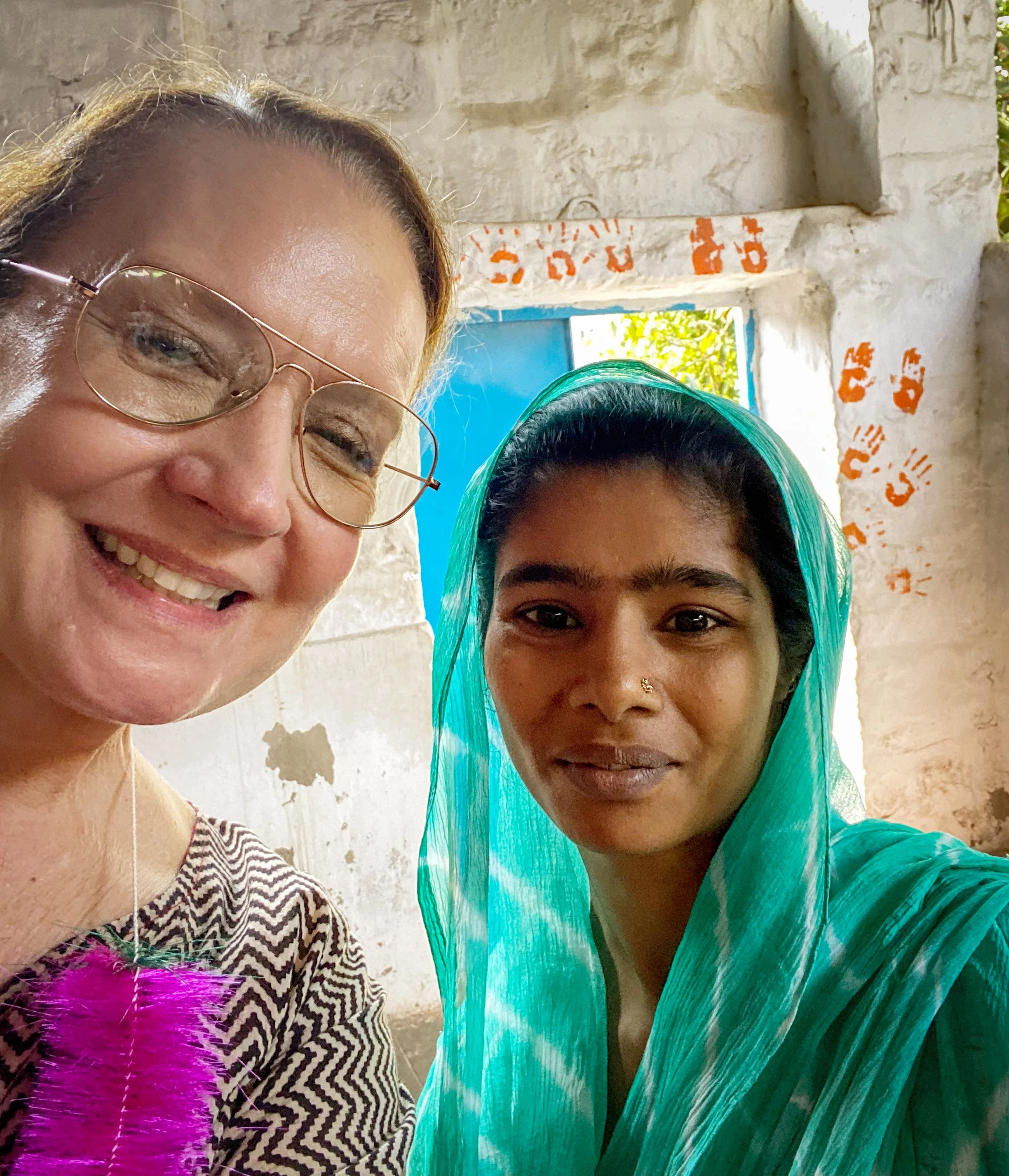Vice President’s Message
In March, I took a trip to visit Sambhali Trust in India. While there, it isn't easy to do anything except take it all in. One of our new volunteers said it best, "You need to let India wash over you." I had to leave all notions of time, schedules, and plans in my carefully color-coordinated bullet journal. I quickly learned that by going with the flow, I encountered way more meaningful things than what was on the schedule. It was best to just hang on.
When I first visited Sambhali Trust as a tourist four years ago, I immediately realized what an impactful organization it was. This visit was no different. I saw so many successes.
In Jaisalmer, Sambhali was invited to a local fair so the women could sell their crafts and start making money even as they learn. The quality of their work is so good that Sambhali has a contract with Marriott Jaisalmer to provide welcome gifts for all the guests.
In the rural village of Setrawa, sisters Sampta and Sunya attend college on Sambhali scholarships and will become teachers. Meera, a Sambhali Primary Education Center teacher, is fulfilling her dream of ensuring all her children attend college. Another scholarship student, Nisha , has opened a salon.
In Jodhpur, the Empowerment Centers are full of women ready to learn and help each other. I was so excited to meet a woman my age at the Abhivyakti Center. Like me, her children were grown and gone. She had never been to school but decided to try something new. She is now learning to sew, read, and write. It's never too late!
The boarding home girls continually amaze me. They are so far from their families but have made each other a family. The younger girls say with complete confidence that they are going to college and have no apprehensions about leaving home to go to school in Jodhpur. Many are the first in their families to do so.
Not everything is a success, at least not through Western eyes. I met women who still can't take care of their health because there is no one to help with their multiple children so they can rest and recuperate. There are girls still forced to marry early. There are children whose only exposure to school is at the Primary Education Center. It's easy to talk about success. It's not easy to talk about the heartbreak. The work Sambhali is doing is messy and complicated. It takes effort to control your own destiny in a culture where women haven’t been valued.
Sambhali is addressing these issues thoughtfully.
They are building trust with women who need life-changing surgery—encouraging them to band together and help each other during recovery.
They are working with parents forcing their daughters to marry to ensure they can complete their education.
They are speaking with parents every day about enrolling their children in school.
I want to leave you with one of the most joyous events I was able to attend. Women who complete their work at the empowerment centers receive their own sewing machine at a ceremony at the end of the year. All 307 of them! The women and their families were so proud of their accomplishments. Many husbands insisted I take a picture of their wives with their sewing machines. Sewing machines and tables were loaded onto waiting tuk-tuks (auto rikshaws) and carefully balanced on motorcycles. That night sewing machines were being set up in homes across Jodhpur and Setrawa by confident and empowered women.
The work Sambhali does is complex and not always the picture of Western success, but they aren't giving up, and neither will I.
Thank you for your continued support of the brave women and girls of Sambhali,
Ginka Poole
Vice President
Sambhali U.S.






